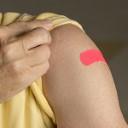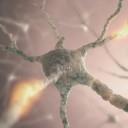-
Avoiding Unnecessary Lymph Node Biopsy
A study adds to evidence that many patients with ductal carcinoma in situ do not need to have their lymph nodes removed.
by Cheryl Platzman Weinstock
-
Treating Fear of Recurrence
Cognitive behavioral therapy may help cancer survivors cope with fear of recurrence, some studies say.
by Jon Kelvey
-
Cancer Patients Should Receive Flu Shots
People with cancer are at increased risk of serious complications if they get the flu. Flu shots are safe for this group, and a recent study bolsters evidence of their effectiveness.
by Carly Weeks
-
What to Do About Lymphedema?
In a randomized study, weight loss and home-based exercise did not improve lymphedema symptoms in breast cancer survivors.
by Anna Azvolinsky
-
Advocacy Spotlight: A Mission to Bring Awareness
Minister and thyroid cancer survivor Thurselle C. Williams speaks at conferences and events about cancer awareness and, ultimately, healing following her 2016 diagnosis.
by Erin L. Boyle
-
Helping Cancer Survivors Sleep
A clinical trial comparing acupuncture and cognitive behavioral therapy found that they are both helpful for people who are experiencing sleep problems after cancer treatment.
by Cheryl Platzman Weinstock
-
2018: This Year in Cancer News
The Cancer Today editorial staff selects some of the most interesting and impactful reporting, research and perspectives of 2018.
by Cancer Today Staff
-
2018 SABCS: Choosing the Right Treatment
Studies presented at the 2018 San Antonio Breast Cancer Symposium investigate when patients with early-stage breast cancer or precancerous breast conditions benefit from receiving less intense treatment.
by Kate Yandell
-
Coping With Head and Neck Cancer
Patients with head and neck cancer often face physical, social and emotional issues that can add to existing mental health problems or give rise to new ones.
by Cheryl Platzman Weinstock
-
Life After Pediatric Brain Cancer
Survivors of pediatric brain or spinal cord tumors can have cognitive and physical impairments. Researchers say that these deficits can be minimized with the right interventions.
by Cheryl Platzman Weinstock
Cancer Talk
Treatment Combination Improves Survival in EGFR-positive Lung Cancer
Adding chemotherapy to targeted therapy improves outcomes for people with advanced EGFR-positive non-small cell lung cancer.
by Sandra Gordon
Lessons From 20 Years Living With CancerMultiple myeloma survivor Jonathan Gluck reflects on uncertainty, and the scientific progress that has kept him living with cancer for more than two decades.
by Eric Fitzsimmons
The Enduring Importance of Cancer Disparities ResearchOpening session from AACR conference highlights how perseverance and adversity have informed cancer disparities research over the years.
by Eric Fitzsimmons
Most Cancer Survivors Don’t Meet Healthy Diet GoalsDespite research linking fruits and vegetables to cancer survival, many people do not change their eating habits after diagnosis.
by Darlene Dobkowski














